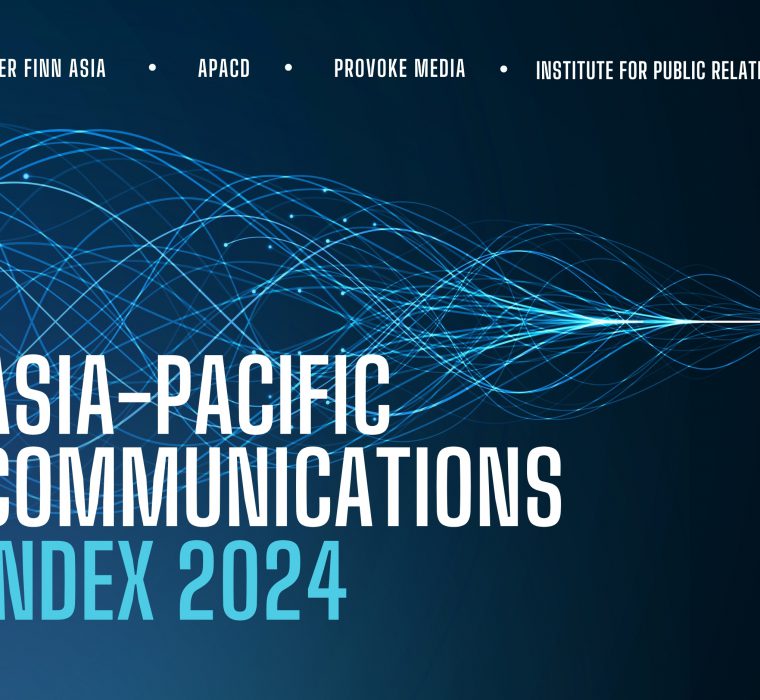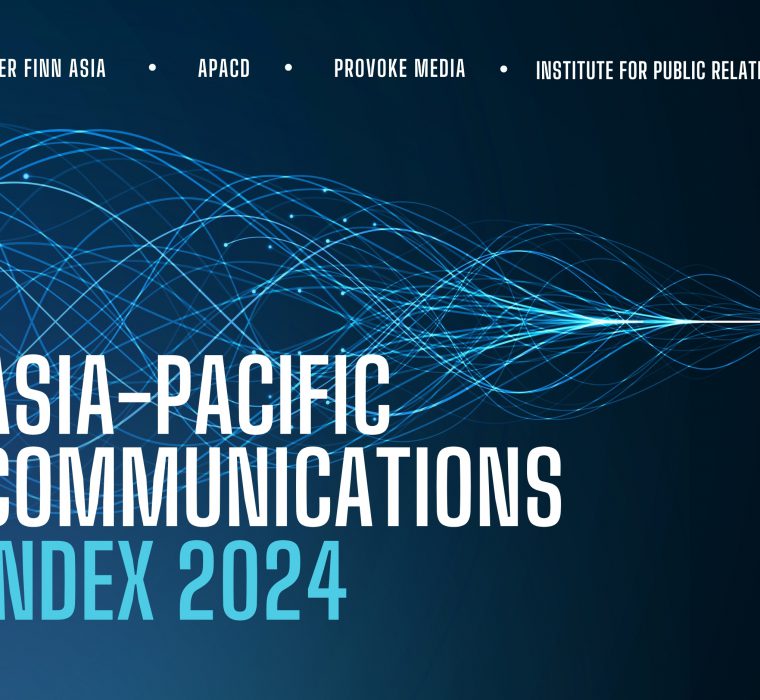Davos 2024: Four Key Takeaways For Communicators
22nd January 2024
A volatile political environment points to several significant issues for the public relations world during the year ahead.

Rhetoric is rarely in short supply in Davos. The World Economic Forum sometimes appears to subsist solely on a diet of soundbites, but translating these well-intentioned conversations into real world realities often appears like a more elusive goal.
That equation is further complicated by the various bubbles that persist during a weeklong event at which younger voices and the Global South, in general, are conspicuously absent. Politicians engage in earnest discussions about trade patterns inside the Congress centre, while corporate chiefs spend much of their time striking deals — emerging intermittently to proclaim the virtues of purpose while rubbing shoulders with a mystifying array of celebrities.
None of which seems particularly helpful when it comes to the World Economic Forum’s own reputation, during a populist era when its relevance — and ability to solve the world’s most pressing problems — comes under increasing scrutiny.
The sheer concentration of political, business and civil society leaders certainly makes for plenty of noise, or ‘thought leadership’, to use more popular Davos terminology. While that can be an exhilarating experience for participants, it can also contribute to a sense of detachment from the urgent problems that are facing the planet in 2024.
The truth, as ever, probably lies somewhere in between. Davos is neither a panacea for the world’s ills nor the source of all its troubles. For the public relations world, with one foot on Main Street and one in the C-suite, it continues to shine a remarkably useful spotlight on the issues that matter to the business world — helping to frame corporate concerns amid cautious economic optimism and heightened political uncertainty.
As usual, we have sounded out various industry figures to come up with four themes that resonated most among the many communications and marketing leaders that made this year’s pilgrimage.
1. AI’s probability of doom
There was no mistaking the most popular topic on the Davos agenda this year, with AI serving as the subject of far too many sessions. Most of these focused on the technology’s utility and impact, without necessarily taking into account the rising distrust of innovation revealed by Edelman’s Trust Barometer.
“Two-thirds told us the system is biased to the wealthy,” said Edelman CEO Richard Edelman. “It should all be a big warning sign — you’re going too fast, I don’t feel heard. We’re charging ahead as if it’s all assumed to be good, and it’s not by a lot of people. They are scared for their jobs.”
Very little discussion, furthermore, considered AI’s potential as a source of a reputation risk, which is likely to become increasingly pronounced as corporates find themselves deploying the technologies across all aspects of their services.
“Davos 2024 was obsessed with AI in a way I have not seen before, which is a problem,” says FTI Consulting global head of TMT Charles Palmer, who notes that the climate crisis was afforded far less attention compared to previous years. “Greater balance is needed and AI is, after all, just a powerful enabler of digital transformation which we have talked about for years.”
Much of the discussion, according to Ruder Finn CEO Kathy Bloomgarden, revolved instead around tech doomerism — or the p(doom) score as it referred to. “The prevailing opinion is optimistic that AI will unlock productivity and prosperity,” says Bloomgarden. “But good AI needs a sound data infrastructure, labor force flexibility and training, sustained innovation and strong ethics and governance. We need to be intentional about these four factors. Today we are not prepared, but we can get there.”
For communicators, says Bloomgarden, the accelerated pace of change means they cannot avoid a period of intense disruption — either for themselves, or for their companies and colleagues. “To stay ahead of the curve, it’s important to remain open to learning and transforming how we work with AI – from developing AI and digital literacy skills, to using creativity to our advantage, to ensuring we have an ethical mindset for using these tools,” she explains.
“We need to form partnerships that benefit all and show that they create enterprise value. At the center of this, communicators and business leaders must focus on an inspiring vision of the future and an optimistic belief in what is possible.”
2. Disinformation and division
Taking top spot in WEF’s annual risk report, the perils of fake news — amplified by social media and AI — continue to vex minds, especially in a year when 2bn people are set to vote. Washington Post CEO William Lewis described the threat as “very significant”, while Meta oversight board member Helle Thorning-Schmidt admitted that social media giants must do more to tackle mis and disinformation on private messaging platforms like WhatsApp.
Meanwhile, an MIT professor offered personalised deepfakes to anyone willing to be filmed for a 15-second video — highlighting the ease with which digital lies can be developed and amplified.
While improved media and civic literacy would undoubtedly help, that seems like a distant dream in many countries. Many at Davos would probably prefer that any regulation remains a similarly elusive goal — so it is hard to see how disinformation, whether state-sponsored or not, can be effectively tackled in today’s online media environment.
While all of the major players, such as Google and OpenAI, reiterated their commitment to stopping political misuse of their tools, YouTube CEO Neal Mohan conceded that, in the hands of bad actors, generative AI can be easily used to produce deepfakes. Mohan added that YouTube would be “bold and responsible” in terms of policing AI-generated content.
Whether deepfakes are banned or not, websites hosting AI-created fake news have increased by more than 1,000% since May, increasing from 49 sites to more than 600, according to NewsGuard, an organization that tracks misinformation. Needless to say, whatever works in the political environment will be employed in the corporate realm.
That so many people are willing to believe and share this content also reflects the more fundamental disconnect that is as relevant for the business world as it is for the state of global democracy.
“We mustn’t forget that to a certain extent, this is about equity,” explains Thorning-Schmidt. “It’s also about everyone having a fair chance to participate in society — education, jobs, having a fair chance of keeping themselves informed. If you don’t have a stake in this, why would you vote?”
3. Culture wars make for cautious corporates
One of the dominant themes of Davos in recent years is the rising tide of populism and political polarization around the world, and the extent to which it troubles corporate leaders.
A year ago, pretty much every major corporation in America considered these two issues to be important, not because CEOs are “woke” (a nonsense idea, unless you have never met a CEO), but because running a company that behaves responsibly and treats all customers and employees with respect is simply sound business. And to be fair, both DEI and sustainability were on the agenda at Davos this year.
The backlash against ESG and DEI has escalated over the past couple of years: first there was the attack on corporate free speech launched by the governor of Florida after Disney opposed attacks on the LGBTQ community; then there were the violent protests that followed efforts by Anheuser-Busch’s Bud Light brand to include all Americans in its marketing campaign; and the threat of physical violence against employees of Starbucks and Twitter and others that supported Pride month.
It’s not surprising that CEOs are reluctant to face the kind of social media outrage and threats of physical violence that are triggered these days by efforts to do the right thing, to say nothing of the intense tribalism spurred by the Israel-Gaza conflict.
That goes for their communications heads too. At two roundtables last week — PRovoke Media’s own event with Weber Shandwick and the S30 gathering at Goals House — I heard from communications and sustainability leaders who are increasingly dialling down their ESG rhetoric as ‘green-hushing’ takes hold.
“A lot of companies are pulling back because ESG is seen as a dirty word,” said the marketing head at one of the world’s biggest consumer companies, on condition of anonymity. “Business leaders are backing away from the language of inclusion,” said Vista Equity CEO Robert Smith at a separate Fast Company/Verizon event.
Many might applaud the end of unfettered brand activism as a necessary correction to rampant virtue signalling. But it also hard to avoid the conclusion that companies are simply less willing to accommodate the discomfort associated with efforts to tackle societal issues. Framing these initiatives in terms of economic growth and empowerment may help.
4. Geopolitics looms large
You could be forgiven for assuming that the world is completely at peace, given the paucity of official WEF sessions devoted to the various geopolitical conflicts and tensions around the world. But these topics were impossible to avoid across the Davos fringe, reflecting rising anxiety despite an improving economic picture compared to 12 months ago.
“What’s not going the right way is all this uncertainty with geopolitics,” said Bloomberg TV anchor Francine Lacqua, speaking to Mubadala CCO Brian Lott at a Page reception. “The world is shifting, and geopolitics is probably a symptom of that.”
Indeed, a new survey of comms leaders by Page identified geopolitics as the primary risk to business for the year ahead, closely followed by concerns about polarization. Among the surveyed CCOs, a notable 45% highlighted international conflicts and elections as the paramount critical risk demanding businesses’ attention in 2024.
Amid wars in Ukraine and the Middle East, and a potentially destabilising year of elections, European Commission president Ursula von der Leyen described an era of “conflict and confrontation, of fragmentation and fear”. Those attitudes also underpin increasing geoeconomic fragmentation, as countries prioritise national security and resilience over economic efficiency.
While these trends will make the business environment more challenging for multinational corporations and agencies alike, they also have a significant real-world impact on public affairs and communications decisions. Companies are increasingly required to strengthen their government relations and public policy efforts, while walking a tightrope between stakeholder concerns that can vary wildly according to geographic provenance.
All of which, of course, does not necessarily spell bad news for public affairs and communications specialists that are being called on to provide counsel, even if the problems under consideration become ever more complex. But it does sound a cautionary note for the various challenges of our time — including climate change, disinformation, AI and security — that do require meaningful collaboration.
Additional reporting by Paul Holmes and Zhao Lu.




